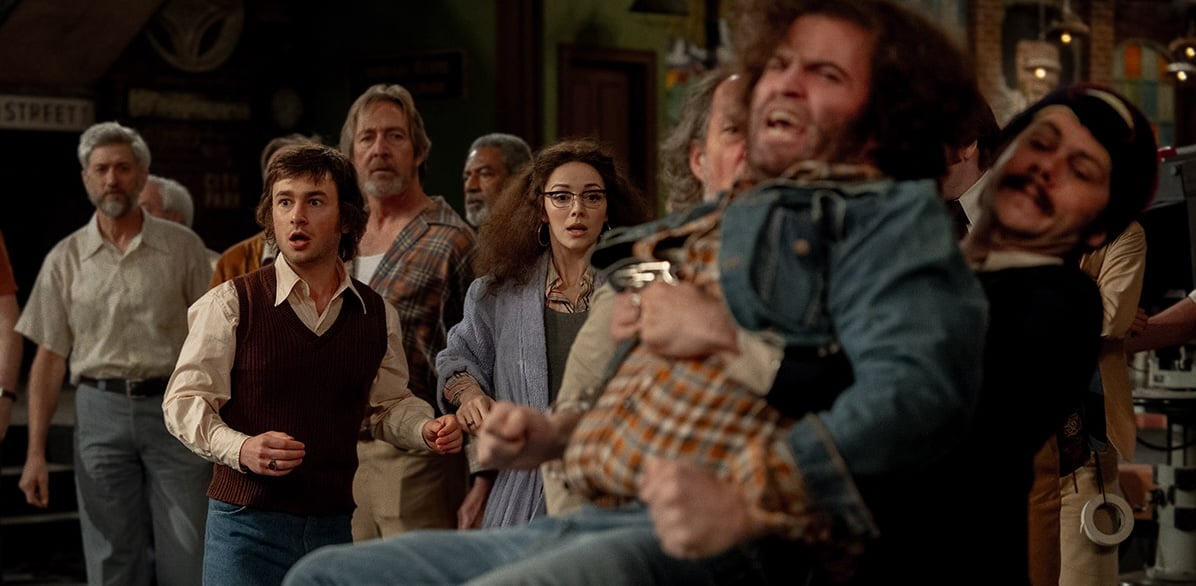As the title suggests, Saturday Night takes place in all of one night, during the very first airing of the titular NBC show. Everyone’s naturally nervous, not least of all Lorne Michaels (Gabriel LaBelle), who runs the entire circus. The suits are keeping eye, the cast clashes egos, no one knows where the lighting director is or if costume change can happen just in time. The guests are unhappy, there are too many sketches, and to top it all off, Lorne’s wife Rosie doesn’t know if she wants to use his last name in the credits. The stakes are high. But are they, really? Saturday Night often feels arrogant and self-important in how it assumes we’d care how things went down that fateful night. Still, it tempers that with a humorous self-awareness, some fine performances, an infectious buzzing energy, and well-timed reminders that SNL is, in fact, that show. It changed the trajectory of comedy in TV, and so that arrogance is earned (though still admittedly annoying at times). And lest you think it’s all laughs and nerves, Saturday Night also harbors some surprising sweet stuff in the center. The film doubles as a love letter to New York City, specifically the NYC of the late 20th century. Though that expression can be overloaded too, it’s endearing and enjoyable nonetheless.





